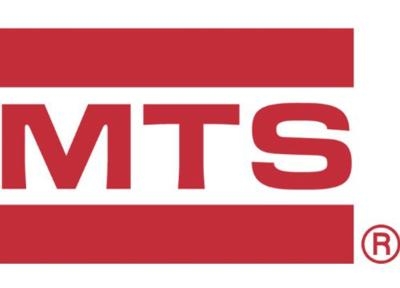Tue, Jul 22, 2014
Test System Used By Snecma In Evaluation Of LEAP Turbofans
MTS Systems Corporation ... a supplier of high-performance test systems and position sensors, recently delivered a state-of-the-art test system to French aircraft engine manufacturer Snecma (Safran). The test system is being used for highly complex testing and certification of fan blades made from advanced composite materials for the next-generation LEAP turbofan. The new engine is designed to deliver significantly cleaner, quieter and more fuel-efficient performance than current jet engine designs.

The LEAP engine was developed by CFM International, a joint company between Snecma (Safran) and General Electric. It is the successor engine for the CFM56 line and is slated to equip the Airbus A320neo and Boeing 737 MAX aircraft, among others.
The MTS test system is engineered to simulate the dynamic forces experienced by fan blades in a real-world jet engine operating environment. The system comprises a high-force servo-hydraulic load frame outfitted with a unique configuration of vertical and lateral actuators capable of accurately replicating the combination of forces.
According to Dr. Mike Jost, Senior Vice President and General Manager of MTS Test, developing the Snecma test system posed unique engineering challenges. "The test program requires that fan blade specimens be subjected to 1.4 million load cycles over the course of six months. Adding to this challenge, Snecma required that this high-frequency system also be adaptable to test blade sizes and geometries beyond those required by the first application program. To meet these aggressive test requirements, we engineered a custom test solution to provide precise control of complex forces and motions at high frequencies."
"The new LEAP jet engine promises to lower fuel consumption and emissions by 15 percent when compared to today's engines, saving fuel and reducing the impact on our environment," said Dr. Jeffrey Graves, President and Chief Executive Officer of MTS Systems Corporation. "Our close collaboration with Snecma in the development of this next-generation technology exemplifies the pivotal role MTS technology can play in meeting one of the key challenges of our time – building a cleaner, more fuel-efficient global transportation infrastructure."
More News
He Attempted To Restart The Engine Three Times. On The Third Restart Attempt, He Noticed That Flames Were Coming Out From The Right Wing Near The Fuel Cap Analysis: The pilot repor>[...]
Make Sure You NEVER Miss A New Story From Aero-News Network Do you ever feel like you never see posts from a certain person or page on Facebook or Instagram? Here’s how you c>[...]
From 2009 (YouTube Edition): Leading Air Show Performers Give Their Best Advice for Newcomers On December 6th through December 9th, the Paris Las Vegas Hotel hosted over 1,500 air >[...]
Aero Linx: NASA ASRS ASRS captures confidential reports, analyzes the resulting aviation safety data, and disseminates vital information to the aviation community. The ASRS is an i>[...]
“For our inaugural Pylon Racing Seminar in Roswell, we were thrilled to certify 60 pilots across our six closed-course pylon race classes. Not only did this year’s PRS >[...]
 NTSB Final Report: Rutan Long-EZ
NTSB Final Report: Rutan Long-EZ ANN FAQ: Turn On Post Notifications
ANN FAQ: Turn On Post Notifications Classic Aero-TV: ICAS Perspectives - Advice for New Air Show Performers
Classic Aero-TV: ICAS Perspectives - Advice for New Air Show Performers ANN's Daily Aero-Linx (06.28.25)
ANN's Daily Aero-Linx (06.28.25) Aero-News: Quote of the Day (06.28.25)
Aero-News: Quote of the Day (06.28.25)



